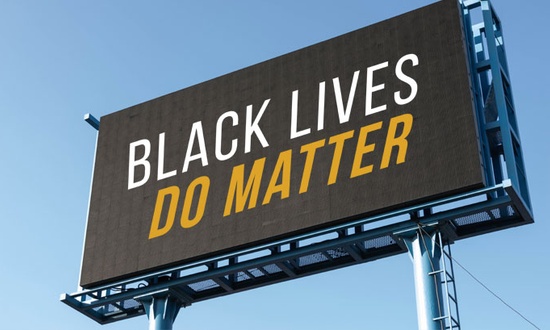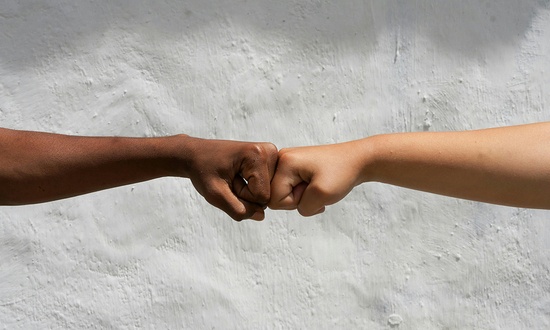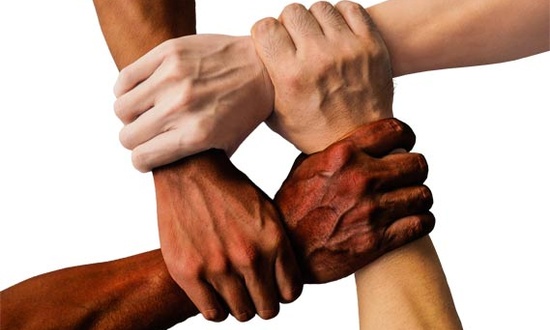I have the greatest appreciation for Trillia Newbell, the author of United: Captured by God’s Vision for Diversity. She is a delightful, godly, and wise woman, with a perspective that is needed in the church today.
One of the many things Trillia does is provide a commentary for the podcast The World and Everything in It. She recently shared some thoughts related to the murder of Ahmaud Arbery.
I am well aware that there is a great deal of polarization every time a young black man is shot and killed. There are those who always assume he was totally guilty and those who assume he was totally innocent. In cases where there is evidence that he has been guilty of something, the bigger question is, was he guilty of something which justified his being shot and killed? Please listen carefully to what Trillia has to say and ask God to speak to you through her. —Randy Alcorn
When news broke that a young black man was shot, my first instinct was to mourn. Not another one, I thought to myself. I decided to read as much as possible to gain understanding. And the more I learned, the greater the grief.
By this time, it’s likely we’ve all heard of Ahmaud Arbery. He was murdered while running through a Georgia neighborhood in February. As soon as a video of the shooting surfaced, it sparked an immediate public outcry. I was one of the many who ran in his honor on May 8th, which would have been his 26th birthday.
But not everyone was mourning. Plenty of people took to social media with hopes of tarnishing Arbery’s character. Images of someone who looked like Arbery walking into a construction site began to circulate. Then came discussion of a possible incident when he was 19 years old.
My hope for a society that could come together when the evidence was mounting against the assailants began to fade.
It doesn’t matter if he went into a construction site during his run. It doesn’t matter if we find out that he had anything, criminal or otherwise, in his past.
And even if there were a burglary involved, execution is inexcusable. Private citizens may not stalk, ambush, and kill someone. Arbery was unarmed and jogging—nothing warrants his tragic demise.
All of us who are pro-life understand just how precious life is. God created Ahmaud Arbery in His image. Whether Arbery knew Jesus or not doesn’t take away his value and worth. The color of Arbery’s skin doesn’t determine his significance. He is valuable because God created him.
We all know this. So, when I see an unarmed black man gunned down, my heart breaks. It breaks for his family, it breaks for our country, it breaks for the pending divide we will see over yet another story like this. It breaks because an image-bearer lost his life in an unspeakable way.
I’ve imagined what it would have been like if we all heard this story without knowing what these men looked like or where they were. How might the responses have changed?
Most of us would agree every life is valuable. Most of us would agree that no one should be forced to answer questions from strangers holding guns. Even if we disagree about the idea of citizen’s arrest, almost no one condones killing an unarmed man.
The trouble with these situations is that the moment we insert race—it becomes a divisive issue, rather than one we all mourn. But ethnicity does matter in these situations, because we are continuing to see unarmed black men die. There’s no excuse for it, and that’s why you see an outcry from the black community and beyond.
Our reaction isn’t an overreaction. It’s a desire to see unity, peace, love, and justice. Most of the calls I see from my African American brothers and sisters are calls for justice and lament. And that’s all any of us can hope for.
Justice is coming one way or the other—whether by the court of law or by the Lord Himself. One day every tear will be wiped away, but for now we mourn as we wait.
This commentary originally aired on The World and Everything in It podcast. © 2020, reprinted with permission. All rights reserved.
Related to this topic, I highly recommend Benjamin Watson’s thoughtful and well-written book Under Our Skin. (Much of what Benjamin writes about reminded me of what I learned in researching my novel Dominion.)
Photo by jerry klein on Unsplash




